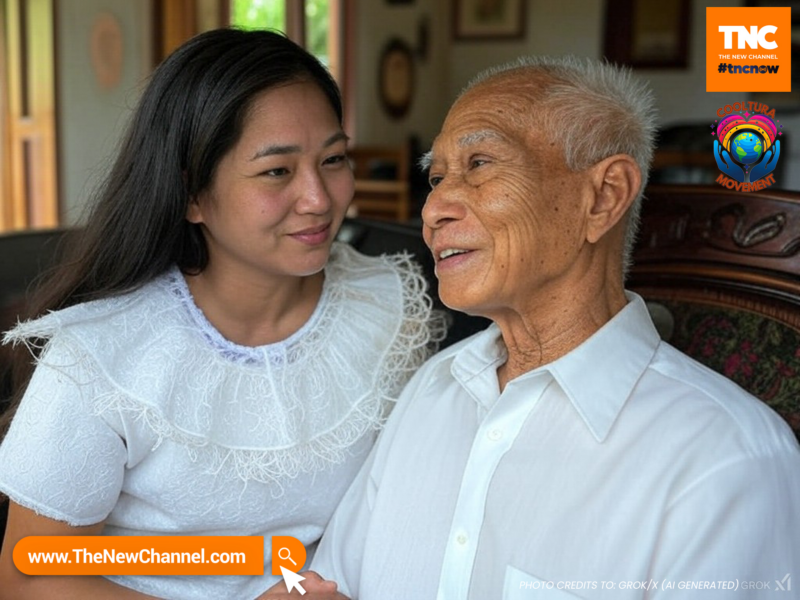The pursuit of work-life balance is a global phenomenon, yet its meaning is deeply personal, and shaped by cultural values and individual experiences. In the Philippines, where family ties are paramount, the desire to integrate work and life is powerful. While studies reveal the challenges Filipinos face in achieving this balance, my journey reflects a growing movement towards embracing remote work as a means of honoring our cultural values and enhancing our quality of life.

AI image generated by Grok of X
Recent research paints a concerning picture of work-life balance in the Philippines. A 2024 study by Remote ranked the Philippines 59th out of 60 countries in its Global Life-Work Balance Index, with an index score of 27.46 out of 100. Filipino workers average 40.63 hours per week, and face challenges with statutory annual leave, minimum statutory sick pay, and healthcare support. These statistics highlight the systemic issues that contribute to the imbalance experienced by many Filipino workers.
The Filipino work culture is a complex blend of traditional values, colonial influences, and modern practices. Family, respect, and teamwork are central to this culture. While Filipinos are known for their dedication and hard work, they also place a high value on work-life balance and spending quality time with loved ones.
Pakikisama, the Filipino concept of maintaining harmonious relationships, can sometimes lead to overwork and difficulty setting boundaries. The desire to please others and maintain good relations with colleagues and superiors can overshadow personal needs, making it challenging to say no to unreasonable demands.
Despite these challenges, the desire for a balanced life remains strong, particularly as it relates to family. With increasing safety concerns for children and a cultural emphasis on caring for aging parents, many Filipinos seek work arrangements that allow them to be more present and involved in their families’ lives.
Like many Filipinos, my career began with the traditional path of working in a bustling city. Since 2011, I had been working in the hotel industry, and community immersion had been vital to introduce my brands, but admittedly, it has taken a lot of time for me to be away from family.
But over time, the allure of city life faded. The long commutes, the cramped living spaces of overcrowded condos, the petty office politics – all took a toll. More importantly, I felt a growing disconnect from my family. The thought of entrusting my parents to househelpers while I navigated the complexities of my career became increasingly unsettling.

AI image generated by Grok of X
I began to question the conventional definition of success, the one that equated long hours and a prestigious title with a fulfilling life. Was I truly thriving if my personal life was suffering? Was my family truly benefiting if I was constantly stressed and absent?
Adulthood made me realize, plus the improvement of technology and AI, we have gained knowledge, experience and confidence to pivot for a more entrepreneurial yet focused job. As a professional, it gave me more direction to focus more on how I wanted to further grow in my career without dealing with office gossip or office politics. Our focus on operations and details of dealing with business consultancy made us more realistic, further establishing our working ethics by creating more substantial connections and productivity.
I’m now taking care of my octogenarian elders, and although I come from a family of medical professionals, we observe that a personal touch is more reliable. The quality of care is different when you also have more time for your elders, and this also gives me an opportunity to improve my sense of community in our village.
My story is not unique. Many Filipinos are seeking ways to integrate their careers with their commitment to family, and remote work offers a viable solution. However, systemic changes are needed to fully support this growing trend.
I hope that the Philippines can continue to embrace opportunities, and it is our wish that there will be more opportunities in both public and public offices to encourage at least a hybrid set-up to avoid overworking or culture of being away from home as a gauge of productivity or loyalty.
This shift towards a family-centered work culture is not just a personal preference; it is an investment in the future of our nation. By prioritizing the well-being of families, we can foster a more resilient, compassionate, and productive society.

AI image generated by Grok of X
Technology should give us more time to improve our lifestyle for work-life balance, as it plays a vital role in enabling remote work and enhancing work-life balance. By leveraging digital tools and platforms, we can streamline processes, automate tasks, and connect with colleagues and clients from anywhere in the world.
However, technology is not a panacea. It is essential to use it mindfully and intentionally, setting boundaries to prevent overwork and burnout. We must also prioritize human connection, fostering meaningful relationships with colleagues, clients, and loved ones.
In the end, achieving work-life balance is a journey, not a destination. It requires ongoing effort, self-reflection, and a willingness to adapt and evolve. But by embracing our cultural values, leveraging technology, and prioritizing our well-being, we can create a more harmonious and fulfilling life, one where work and family coexist in balance.
Words by Jopay Solas
Read more Cooltura Movement articles🔽
https://thenewchannel.com/highlights/category/cooltura-movement-by-jopay-solas/
This story came out on The New Channel. For more NEW stories, visit https://thenewchannel.com/highlights/


